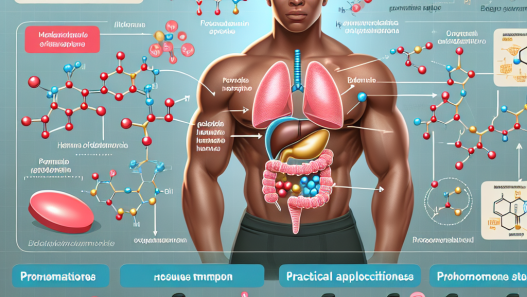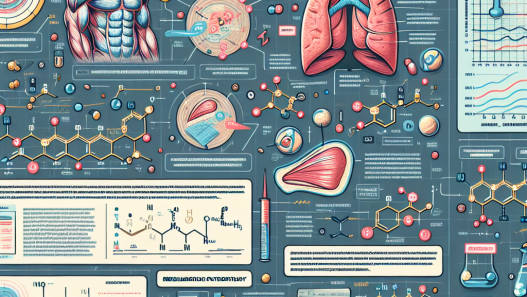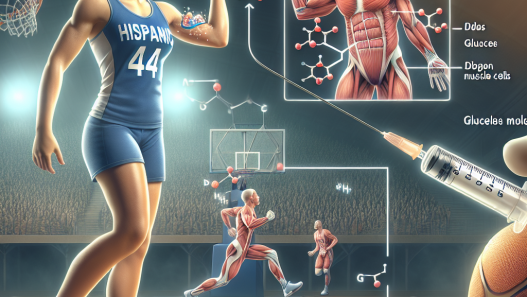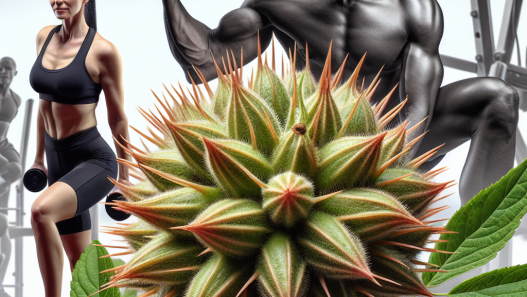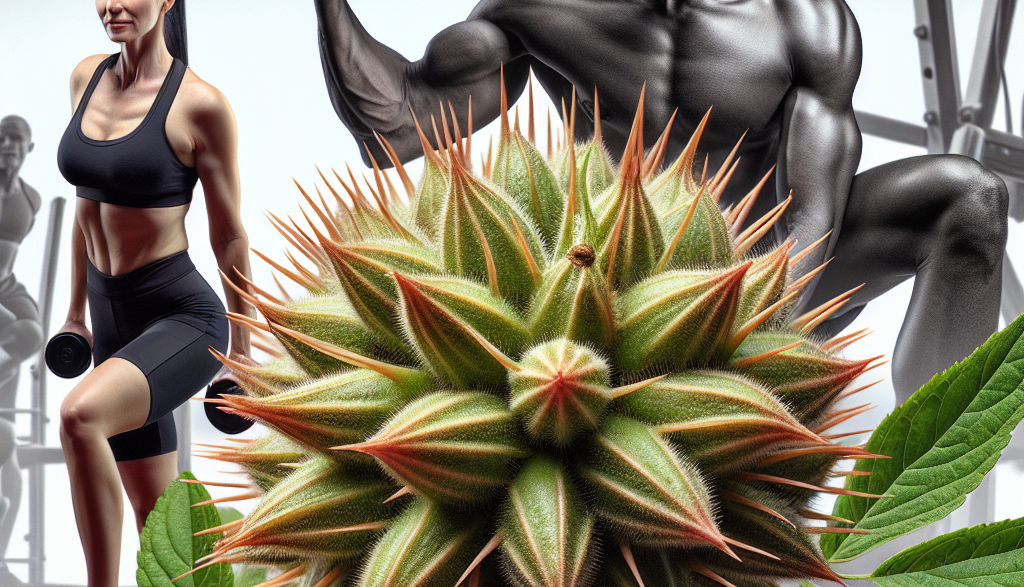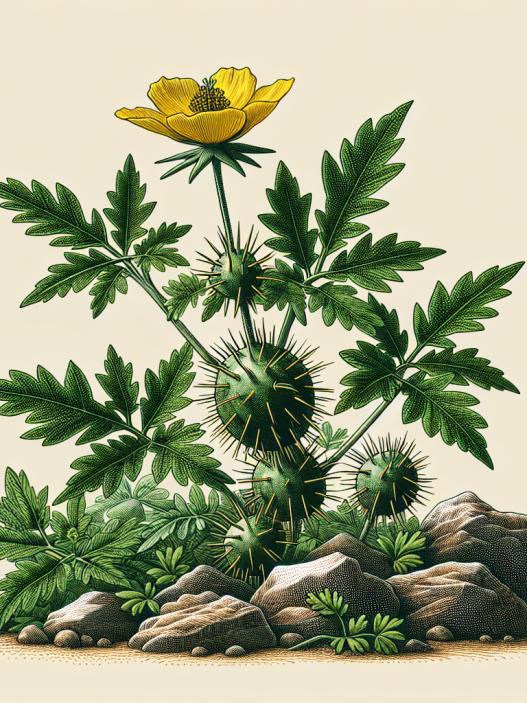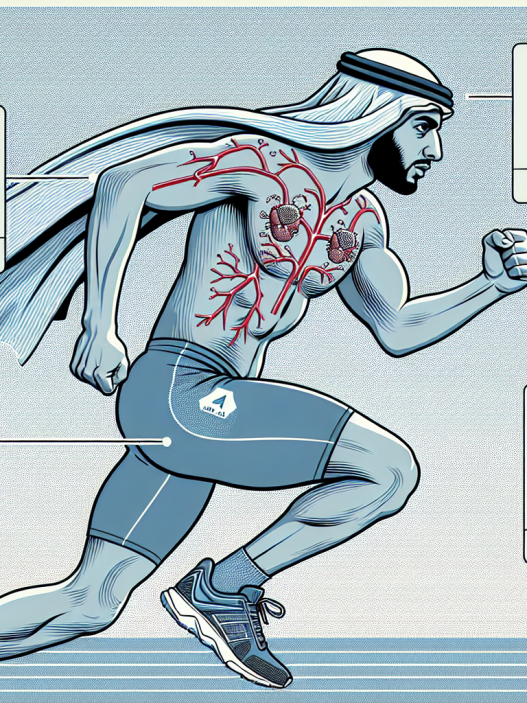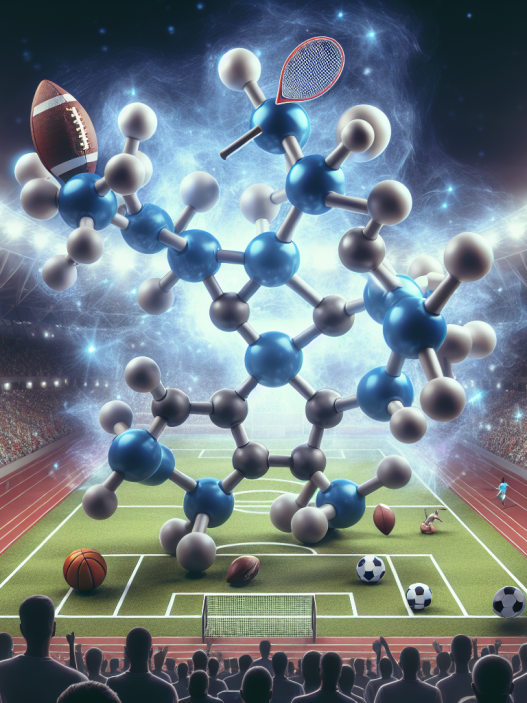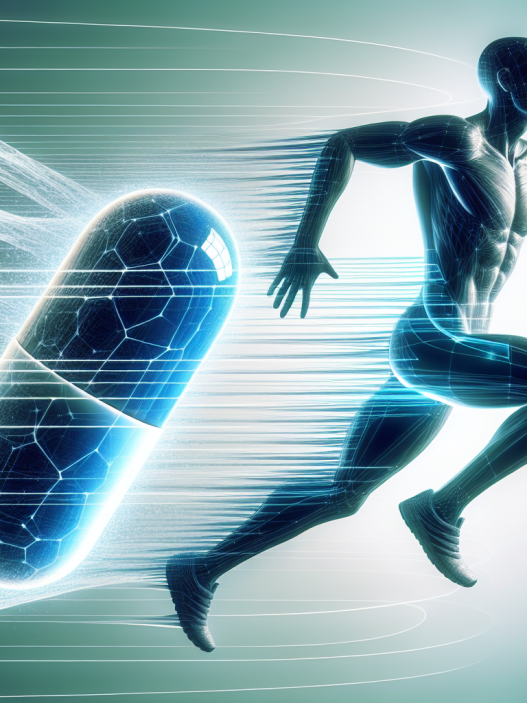-
Table of Contents
Tribulus Terrestris and Its Impact on Testosterone in Athletes
Athletes are constantly seeking ways to improve their performance and gain a competitive edge. One substance that has gained attention in the sports world is Tribulus terrestris, a plant-based supplement that is believed to have testosterone-boosting effects. But what exactly is Tribulus terrestris and how does it impact testosterone levels in athletes? In this article, we will delve into the pharmacokinetics and pharmacodynamics of Tribulus terrestris and explore its potential benefits for athletes.
What is Tribulus Terrestris?
Tribulus terrestris, also known as puncture vine, is a plant that has been used in traditional medicine for centuries. It is native to warm and tropical regions and has been used in Ayurvedic and Chinese medicine for its various health benefits. In recent years, it has gained popularity as a supplement for its potential to increase testosterone levels.
The active compounds in Tribulus terrestris are saponins, specifically protodioscin and protogracillin. These saponins are believed to stimulate the production of luteinizing hormone (LH), which in turn stimulates the production of testosterone in the body. This mechanism of action is what makes Tribulus terrestris a potential testosterone booster.
Pharmacokinetics of Tribulus Terrestris
When taken orally, Tribulus terrestris is rapidly absorbed in the gastrointestinal tract and reaches peak plasma levels within 1-2 hours. The saponins in Tribulus terrestris are metabolized in the liver and excreted in the urine. The half-life of Tribulus terrestris is approximately 5 hours, meaning it is quickly eliminated from the body.
It is important to note that the bioavailability of Tribulus terrestris is low, meaning that only a small percentage of the ingested dose actually reaches the bloodstream. This is due to the fact that the saponins are poorly absorbed in the gut and are quickly metabolized in the liver. Therefore, higher doses of Tribulus terrestris may be needed to achieve desired effects.
Pharmacodynamics of Tribulus Terrestris
The main pharmacodynamic effect of Tribulus terrestris is its ability to stimulate the production of LH, which in turn stimulates the production of testosterone. This effect has been demonstrated in animal studies, where Tribulus terrestris supplementation led to an increase in testosterone levels. However, human studies have shown mixed results.
A study published in the Journal of Ethnopharmacology (Gauthaman et al. 2005) found that supplementation with Tribulus terrestris for 8 weeks led to a significant increase in testosterone levels in men with low sperm count. However, a study published in the Journal of Strength and Conditioning Research (Rogerson et al. 2007) found no significant changes in testosterone levels in resistance-trained males after 5 weeks of Tribulus terrestris supplementation.
These conflicting results may be due to variations in study design, dosage, and the population being studied. More research is needed to fully understand the pharmacodynamics of Tribulus terrestris and its impact on testosterone levels in athletes.
Potential Benefits for Athletes
While the evidence for Tribulus terrestris as a testosterone booster is inconclusive, there are other potential benefits that may be of interest to athletes. One study published in the Journal of Strength and Conditioning Research (Antonio et al. 2000) found that supplementation with Tribulus terrestris led to an increase in lean body mass and strength in resistance-trained males. This may be due to the potential anabolic effects of Tribulus terrestris, which could benefit athletes looking to improve their performance and physique.
Additionally, Tribulus terrestris has been shown to have antioxidant and anti-inflammatory properties, which may aid in recovery and reduce muscle damage after intense exercise. This could be beneficial for athletes who engage in high-intensity training and competitions.
Expert Opinion
While the evidence for Tribulus terrestris as a testosterone booster is not conclusive, it is important to note that the potential benefits of this supplement extend beyond just increasing testosterone levels. As a researcher in the field of sports pharmacology, I believe that more studies are needed to fully understand the effects of Tribulus terrestris on testosterone levels and its potential benefits for athletes. However, based on the available evidence, it may be a promising supplement for athletes looking to improve their performance and recovery.
References
Antonio, J., Uelmen, J., Rodriguez, R., & Earnest, C. (2000). The effects of Tribulus terrestris on body composition and exercise performance in resistance-trained males. Journal of Strength and Conditioning Research, 14(3), 481-486.
Gauthaman, K., Adaikan, P., & Prasad, R. (2005). Aphrodisiac properties of Tribulus terrestris extract (Protodioscin) in normal and castrated rats. Journal of Ethnopharmacology, 96(1-2), 43-49.
Rogerson, S., Riches, C., Jennings, C., Weatherby, R., Meir, R., & Marshall-Gradisnik, S. (2007). The effect of five weeks of Tribulus terrestris supplementation on muscle strength and body composition during preseason training in elite rugby league players. Journal of Strength and Conditioning Research, 21(2), 348-353.

